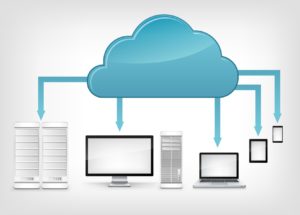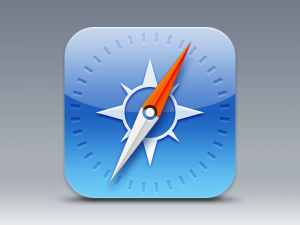The cloud is a large spectrum of a variety of service and delivery models that range from in-house virtual servers to software accessed by many organizations via the internet. Cloud computing technology offers businesses numerous benefits including;
– Faster Production
– Better development of applications
– Cheaper server space
– Technical support
Deciding to choose the right computing infrastructure as your service provider can mean the success or failure of any business. Before selecting the best cloud hosting provider that can guarantee you a long lasting solution, it is important to understand the three categories of cloud service:
a) Infrastructure as a service (IaaS)
It provides basic computing facilities that a consumer can apply to run software (operating systems and applications) and to store data. It allows the customer to transfer a workload to the cloud with minimal alterations. The customer is in charge of managing the OS and application while the host controls the cloud infrastructure. This cloud service allows for flexibility on the part of the customer.
b) Platform-as-a-service (PaaS)
Provides an environment where in the customer can use to construct and deploy cloud applications. Building applications using PaaS means that they are essentially cloud enabled and the PaaS provider provides the service upon which the applications run. The PaaS platforms are difficult to change once deployed.
c) Software-as-a-service (SaaS)
Provides an application and data accessible through a network (internet) using various customers’ devices such as web browsers and mobile phones. It is an immediate working solution for a specific business problem without need for prior investment. Some risk factors associated with it include data privacy issues and loss of governance.
Below is a crucial criterion on how to evaluate the right cloud-hosting provider.
1. Standard API
Ensure that the cloud vendor uses an API (Application Programming Interface). This allows for data transformation that connects specific software programs into the cloud. This means that the servers will be compatible with all the applications and this will reduce any risk factors as you progress.
2. Mobile architecture
Standard software packages are built simply to integrate the software with the company’s data. Cloud software on the other hand operates rather differently, the user data is separate from the applications and this allows the cloud to operate in a less resource-intensive manner. Cloud computing providers should explain how the business data is structured and whether it affects the performance.
3. Security
This is a mandatory inquiry to make to your cloud-hosting provider. This is because it is essential to know how the vendor stores and protects your data. This information will ensure that the business data remains safe. It helps to ask a few questions for example, does the vendor use multiple steps to confirm the identity of users? In addition, are the access levels granted or monitored?
4. Regulation
It is important for the vendor to understand the business regulations on data storage and business protocols. This is because the penalties for mishandling confidential information can be significant to either the vendor or the business. Ensure that the vendor meets the security, performance and service standards required as these can affect your IT productivity.






